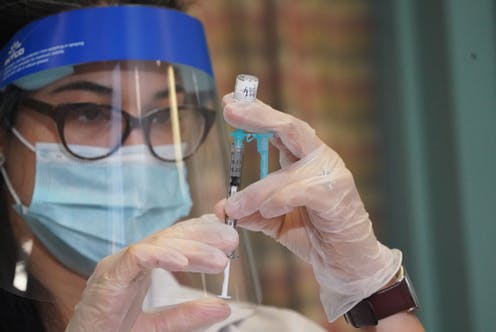The South African. The Brazilian. The U.K.’s “Kent.”
They sound like they could be the names of some new hairstyle. But, as most virus trackers know, they are common shorthand for the new strains of SARS-CoV-2, the coronavirus behind the global pandemic. More transmissible, and in the case of the U.K. strain apparently more deadly, the new variants have forced governments around the world to impose tougher travel restrictions and, in some cases, new lockdowns.
The new variants also pose a problem for the first crop of vaccines. That’s because almost all the vaccines approved so far target the coronavirus’s spike protein. Mutations in this protein can reduce the vaccines’ effectiveness, potentially even negating any immunity.
So far, the solution vaccine makers and governments have proposed is to begin preparing updated versions of the existing vaccines that will prompt the immune system to make antibodies to the modified spike protein found in the new variants.
But if the virus keeps mutating, the world may find it is stuck in a perpetual game of cat and mouse, always trying to catch up with the latest strains of the virus, with a large portion of the world requiring an annual booster vaccination. This is essentially what happens with the flu virus now. And, as with the flu virus, there is a constant risk that researchers will misjudge and fail to spot an emerging and fast-spreading variant that will once again put many people at risk of hospitalization or death.
Might there be another way?
Some scientists think there is: either using more traditional vaccine technology that exposes people to the real virus and all of its proteins, or using new messenger RNA technology to create a universal SARS-CoV-2 vaccine that would be effective against all current and future strains.
First, a little more background on the current situation: While the U.K. “Kent” strain, which is formally designated B.1.1.7, incorporates changes that make it easier to spread and may make it more deadly, the spike protein is not significantly changed, and the approved vaccines work well against it.
But mutations associated with the South African and Brazilian variants of the virus, formally called B.1.351 and B.1.1.248, respectively, render existing vaccines less effective. An analysis of data from the South African clinical trial of the University of Oxford and pharmaceutical company AstraZeneca vaccine showed that it could not prevent mild to moderate illness in those infected with the B.1.351 strain, although the company says it believes the vaccine probably still protects against severe COVID-19. Lab tests using blood samples from those vaccinated with Pfizer’s and Moderna’s messenger RNA-based vaccines also showed that higher antibody levels were needed to defeat the mutant strain than the original virus. But Moderna says it is confident its vaccine produces enough antibodies that it will still protect against moderate or severe disease.
Worryingly, scientists in the U.K. have now discovered a version of the B.1.1.7 “Kent” virus that also incorporates the same spike protein mutation, known as E484K, that the South African and Brazilian strains exhibit. This could have happened if a single person was infected with multiple strains of the virus, which then had a chance to mix their genetic material; or it could be that same mutation occurred spontaneously more than once.
Most of the COVID vaccines that have been approved for use so far were created with relatively new techniques: messenger RNA (mRNA) or modified adenovirus vectors. In both cases, the idea is to instruct human cells to produce one of the coronavirus’s proteins so that it prompts an immune response. The body then produces antibodies that can attach themselves to that protein and disable it. It is also hoped that other parts of the immune system—such as T-cells, which can kill infected cells—learn to recognize the protein as a sign of a foreign invader and kill those cells.













